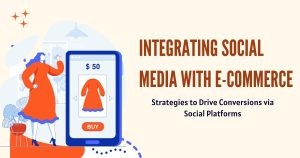Unlocking the Benefits of Referral Marketing for Your Business

Word-of-mouth has always been one of the most trusted forms of advertising. Think about the last time you tried a new restaurant, bought a product, or signed up for a service. Chances are, a friend’s recommendation played a role in your decision. Referral marketing, also known as word-of-mouth marketing, takes this age-old tradition and gives it a structured, scalable strategy.
This guide will explore the key benefits of referral marketing, highlight why it’s so effective, and share how businesses of all sizes can capitalize on it for growth. Whether you’re new to the concept or looking to refine your current strategy, you’ll find actionable insights to make referrals work for you.
What Is Referral Marketing?
Referral marketing is a strategy where businesses incentivize existing customers to recommend their products or services to friends, family, or colleagues. Unlike other marketing efforts, this approach relies on trust between the referrer and the new customer. Often, both parties are rewarded for participating, creating a win-win situation.
Some common examples of referral marketing include:
- Discount Codes: A customer gets a discount when they refer a friend who makes a purchase, and the friend gets a discount on their first order.
- Cash Rewards: Popular in industries like fintech, customers earn cash bonuses for every successful referral.
- Exclusive Perks: Referrers might earn loyalty points or access to premium features for recommending a business.
Why Is Referral Marketing so Powerful?
Before we outline the benefits, it’s essential to understand why referral marketing works so well. At its core, referral marketing taps into human psychology and behavior. We trust recommendations from people we know, value social proof, and want to share positive experiences. This makes referrals inherently more effective than traditional advertising methods.
According to Nielsen, 92% of consumers trust recommendations from friends and family above all other forms of advertising. This makes referral marketing an essential tool for building trust and driving conversions.
Benefits of Referral Marketing
Wondering how referral marketing can help your business? Here are its most significant benefits, backed by insights and examples.
1. Acquire High-Quality Leads
Referral marketing brings in potential customers who are highly likely to convert. Why? Because a trusted friend or family member has already vouched for your brand. These referrals act as pre-qualified leads, saving your sales and marketing teams time and effort.
Example: Dropbox’s legendary referral program gave users extra storage for every friend they referred. By leveraging their existing user base, they attracted over 4 million new users in just 15 months!
2. Build Trust and Credibility
Unlike traditional ads, which can feel impersonal, referrals are built on trust. When someone a customer knows recommends your product, your brand automatically benefits from that credibility.
Example: Consider brands like Airbnb. People are more likely to book a stay through Airbnb if a friend has already endorsed their experience with the platform.
3. Increase Customer Retention
Referral marketing doesn’t just increase customer acquisition; it also improves retention. When a customer participates in a referral program, they feel invested in your brand. The more referrals they make, the more likely they are to stick with your business.
Data Insight: A study by Bain & Company found that increasing customer retention rates by just 5% can boost profits by 25% to 95%.
4. Drive Cost-Effective Growth
Compared to traditional ad campaigns, referral marketing offers a better return on investment. You’re leveraging your existing customer base and turning them into your marketing team, significantly reducing acquisition costs.
Example: PayPal famously grew its user base in the early 2000s by offering referral bonuses of $10 for sign-ups. The strategy was an upfront cost, but it paid massive dividends by boosting their overall market presence.
5. Create Brand Ambassadors
When customers love your product enough to refer it to others, they become brand ambassadors. This organic promotion creates a ripple effect where one referral can lead to another, significantly amplifying your reach.
Tip: Shopify allows merchants to use referral programs alongside email campaigns, creating automated systems that turn happy customers into consistent referrers.
6. Enhance Customer Engagement
Referrals create a natural touchpoint to engage with your customers. Whether you’re thanking a customer for making a referral or updating them on their rewards, these interactions keep your brand top-of-mind.
Pro Tip: Keep your referral program simple to understand and easy to participate in. A clunky process can discourage even the most enthusiastic customers.
7. Expand Your Audience
Referrals often bring in customers who might not have learned about your brand through traditional channels. By tapping into networks of friends and family, you reach audiences that are harder to target through paid ads or SEO.
Example: Gympass uses referral programs to expand its reach in new regions. When existing members invite friends globally, Gympass gains access to uncharted local markets.
How to Build a Successful Referral Marketing Program
Now that you know the benefits of referral marketing, how do you implement it effectively? Follow these steps to set up a referral program that delivers results:
1. Offer the Right Incentives
Your customers need a reason to refer your product. Choose incentives that align with your audience’s preferences. These could be discounts, cashback rewards, free products, or loyalty points.
2. Make It Easy
Simplify the referral process to avoid losing potential participants. Use customized referral links or codes that customers can easily share via email, social media, or messaging apps.
3. Regularly Promote Your Program
Don’t just launch your referral program and forget about it. Promote it in your email newsletters, social media posts, and even on your product packaging.
4. Track and Optimize
Use analytics tools to track the performance of your referral program. Which incentives work best? Which customers are your top referrers? Use this data to refine your strategy.
5. Recognize and Thank Referrers
Show appreciation to your loyal customers for their referrals. Personal thank-you messages, shoutouts on social media, or exclusive perks can go a long way.
Start Growing Your Business with Referrals
Referral marketing isn’t just a fad. It’s a time-tested strategy that can help your business build trust, drive cost-effective growth, and create loyal brand advocates. Whether you’re running a tech startup, an e-commerce store, or a local service, referrals can take your marketing to the next level.
Want to make referrals a part of your success story? Start small by reaching out to your most loyal customers and inviting them to participate. Over time, you’ll build a program that boosts revenue, strengthens customer relationships, and sets your business apart from the competition.





